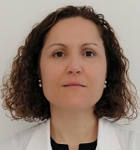Proposed symposia
| Monzur Murshed, MacGill University, Montreal, Canada | Álvaro Tavares, U. Algarve |
With an expected world population of almost 10 billion by 2050, and increasingly harsh
conditions to agricultural production due to climate change, significant advances in plant
sciences are needed to cope with global food security. A more comprehensive understanding of the interactions between plant, environmental conditions and cultural practices is needed. To achieve this goal, a better integration of knowledge at different levels, from molecular biology to whole-plant physiology, is required.
Within this session, we will get aware on the diversity of current approaches to in plant sciences, from new breeding techniques to high-throughput plant phenotyping or plant ecological networks.
 | ||
| Elizabete Carmo-Silva, Lancaster, UK | Helena Carvalho, U. Porto |
Toxin-poison and other bioactive substances, whether chemically synthesized or produced by living organisms, such as bacterial toxins, mycotoxins, phycotoxins or zootoxins, allergens or environmental pollutants may trigger a number of responses within the biochemical machinery of the organisms, unleashing diverse AOPs. The exposome is a determinant key for many undesired outcomes.
The session will cover several components of the exposome, their target biomolecules, cell responses and biomarkers, the development of new detection methods for toxins, allergens and pollutants as well as the development of mitigation strategies.
| Ana Catarina Sousa, U. Évora | Maria João Bebianno, U. Algarve |
Cellular function is supported by finely orchestrated biomolecular interactions. Macromolecular assemblies coordinate complex biological functions such as transcription, translation, cytoskeleton organization, signalling cascades and secretion pathways. To fully grasp the underlying complexity and dynamics of these molecular machines the combination of integrative Structural Biology and Molecular Modelling approaches is crucial. During this session, experimental and theoretical structural biology studies will be presented revealing the molecular mechanisms of various biomolecules with unprecedented atomic detail.
 | ||
| Ana Luísa Carvalho, FCT, UNL |
Molecular and physiological changes associated with neurodegenerative diseases are inexorably linked with aging. Age-related gradual decline of organismal homeostasis, which includes changes in ER and oxidative stress, mitochondrial dysfunction, DNA damage, intracellular transport, protein synthesis and turnover, etc., have all been linked with formation of pathognomonic protein aggregates. Thus, advances in our understanding of the molecular basis of neurodegeneration and healthy aging present an imperative and exciting opportunity to identify novel druggable targets and develop more effective interventions.
 | ||
| Tiago Oliveira, U. Minho | Miguel Castelo Branco, U. Coimbra |
The structure, regulation and integrity of genome are essential for cell division, organims´ development and adaptation to environmental stimuli. With Biology entering the digital era, we are immersed in a wealth of information originating in high-throughput experiments. These data enable us for the first time to study life at the level unimaginable before and understand the entire living systems from molecules to cells, from organisms and communities to ecosystems.
This session will outline the great diversity in the epigenomics field, DNA regulation and remodeling, DNA and RNA methylation, new ways of post-translational modifications, by presenting data from diverse model systems clinical research and new insights in clinical research.
 | ||
| Cecília Arraiano, U. Nova Lisboa | Carmen Jerónimo (IPO-Porto; ICBAS-UP) |
Cell membranes are essential to cell function and are crucial for life. They establish an external barrier separating the inner from the outer media and define intracellular compartments (organelles) essential for metabolic processes and molecular trafficking. The coordinated regulation of membrane components (lipids and proteins) has impact in membrane selective permeability and is a feature providing flexibility and robustness to a variety of physiological processes, including cell signalling. Disorders of membrane lipids, dysfunction of membrane proteins and disruption of cell compartmentalization have serious consequences for living cells and organ performance and are related with several diseases. Several of these issues, from the structural to the functional level, will be addressed in this session.
 |  | |
| M. Rosário Domingues, U. Aveiro | Maria João Sarmento (J.H.I.P.C.C.A.S., Prague) |
Virtually all the important cellular processes such as cell division, cell motility, organelle remodelling and intracellular trafficking depend on the precise localization of proteins and the dynamics of their interactions. Protein folding and trafficking pathways in prokaryotes and eukaryotes are among the most fundamental processes in all of biology. Understanding the mechanisms of protein folding and misfolding regulation and protein trafficking is crucial to understand the role of proteostasis in physiological and pathological conditions, ranging from metabolic imbalance and aging, neurodegeneration, infections, immune disorders, tumorigenesis and cancer therapy.
This session will cover the topics of protein localization, structure and dynamics, by different approaches from biophysics to cell biology, including their impact on human disea focusing on their impact on human diseases and contribution to diminish the ecological footprint of human activities.
 | ||
| Ricardo Louro, ITQB | Eduardo Sousa, Federal University of Ceará |
Medicinal chemistry is a highly multidisciplinary and rapidly developing area that deals with the research on biologically active compounds and their interactions with biological targets to understand their mode of action at the molecular level, and how they can be included in clinically-relevant formulations. This session will provide insights into recent advances on different techniques for design and preparation of new drug leads in antiviral, antimicrobial and anticancer chemotherapy, as well as new drug candidates for contraception, neurodegenerative and inflammatory diseases.
Emphasis will be focused on identification of multitarget-directed small molecules as innovative therapeutic tools, and best administration routes. Mechanism of action and structure–activity relationship studies, including elucidation of target enzyme/protein-drug interaction and metabolic pathways will be discussed.
 |  | |
| Ana Mata Duran, UEx , Spain | João Ramalho Santos, CNC, UC |
In the last years Science and Art have been merging to create innovative views into
the world. New paradigms where science, art and intervention strategies interlace fostering and
Projetos inovadores em:
1. A Bioquímica vai à Escola: projetos inovadores de divulgação da Bioquímica
ao público
2. Formação em ação: olimpíadas e IDays
3. Bioquímica e Sociedade: a bioquímica dedicada à arte e ao património
The COVID-19 pandemic has challenged the community globally, profoundly defying our way of living.
The objective of this session is to present the characteristics of this pandemic and discuss the challenges facing government entities, institutions, the scientific community, and the public. It also intends to contribute to the construction of new perspectives, enhancing interdisciplinary approaches in the context of interventions in Public Health.
A round table discussion is proposed with the following themes:
i) Municipal challenges and social responses
ii) Answers and challenges of Higher Education
iii) Challenges in Public Health: learning and prevention strategies
iv) Infectious characteristics and clinical manifestations
v) Molecular aspects in the understanding of COVID-19: the role of biochemistry in the present and future.
